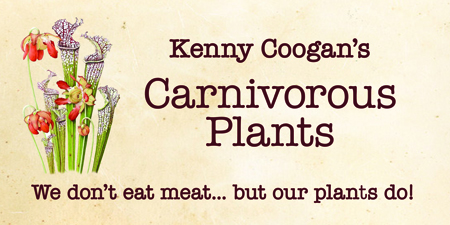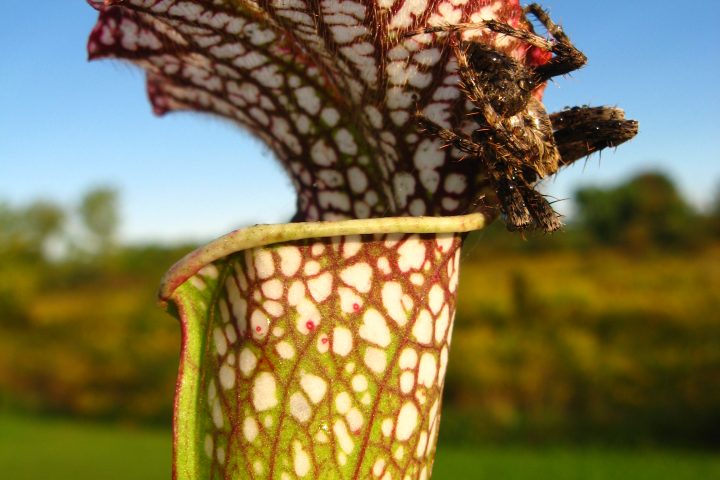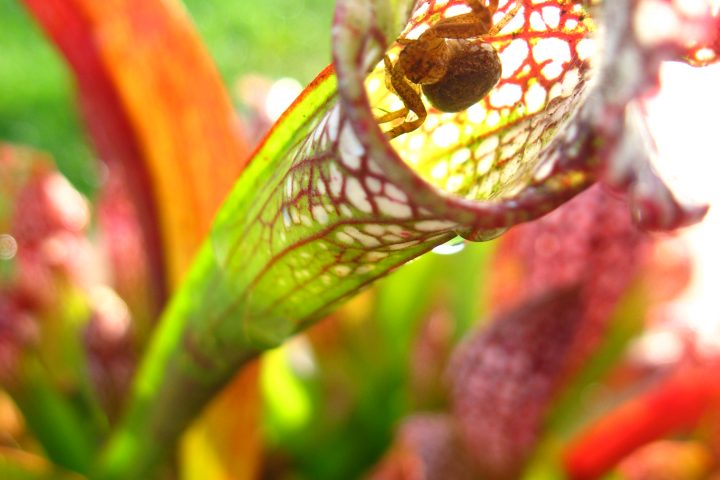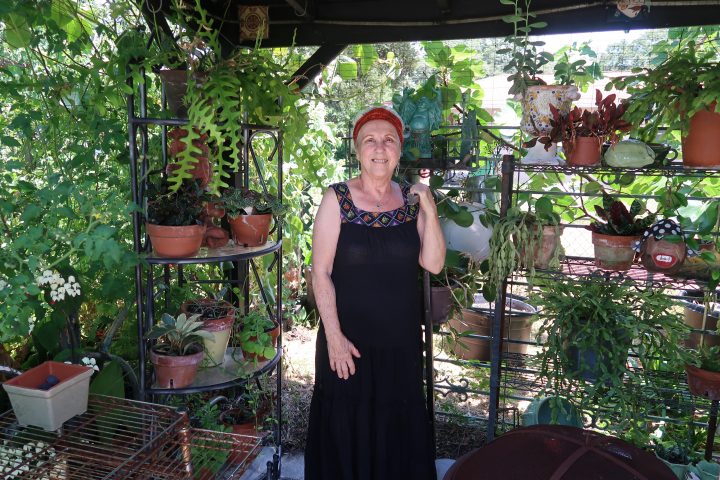I try to be conscientious in all my habits. From using less plastics, to less electricity, I am in a constant search of how to reduce my carbon footprint. One positive impact we can make as gardeners is growing our own food. One way greenhouse gas emissions are produced is when commercial farmers grow, rear, farm, process, transport, store, cook and dispose of the food we eat. Think of the tractors, planes, trains, and cleaning devices it takes to produce a meal. These machines burn a lot of fossil fuels.
By growing your own food, you can avoid many of these gas-producing technologies. Seeding crops is like seeding ornamentals except they aren’t only beautiful they’re edible! Incorporating permaculture practices into your Florida landscape is a great way to sneak in nutritious vegetables, if you aren’t quite ready for a veggie plot. For those with limited space, try container gardening or participate in a community garden.
Located near Lowry Park the Sustainable Living Project (SLP) is a working urban farm and community education center. They grow food on a city lot and teach a sustainable lifestyle utilizing renewable clean energy, aquaponics, hydroponics, and traditional growing methods. All crops are donated to those in need.
I met Georgea Snyder, the director, on site to learn more. She is pragmatic and energetic. She tells me that do to the forecast the volunteer group was canceled. Yet, at the end of my private tour, she ends up with five volunteers!
On the east side of the property, perennials items like moringa, blueberries, fruit trees and pineapples line the perimeter. The front of the SLP houses 34 raised beds -10 of which are dedicated to Veteran volunteers. Multiple sheds, a water catchment system with solar panels, a greenhouse with aquaponics, a chicken coop, bee hives and a multi-stall compost station fill the rest of the one acre.
“The short answer is community,” Snyder answering why she became involved with the project.
“I found SLP through another job and was impressed by the way they were growing food, and also all the ways they integrated other sustainability elements into one place, including community.”
She saw an opportunity to bring wholesome, sustainable food & education to Tampa. For conscientious gardeners who want to raise their own chickens or fish or learn hydroponics SLP is a wonderful resource. For those living in the city with limited space, they can volunteer a few hours a week in return for food. It’s a win-win situation.
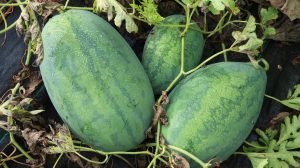
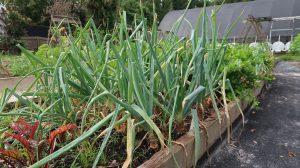
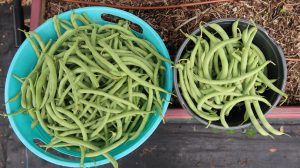
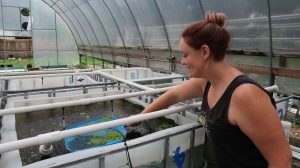
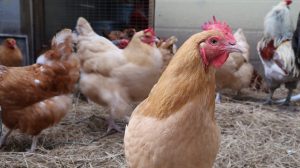
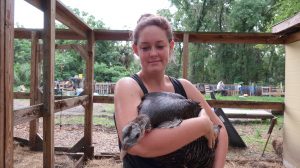
“I had been involved in local food and sustainability in Upstate New York, California, and NYC and I wanted Tampa to join the movement. On top of that, I’m from this area, I grew up just two miles north of the farm and I wanted to see more community activities specifically in this area and this is a way I can really participate in that initiative.”
Snyder has tips for those wishing to implement a similar project in their town. She reminds me that there is power in numbers.“
By participating as a group, we multiply our impact as well as spread awareness and knowledge of ways that everyone can participate. For example, composting isn’t for everyone, but there are also individuals that don’t mind getting a little dirty for good soil. Even if you’re not into the process of composting but have a place to drop your food scraps you can participate in the reuse of soil.”
By hosting a ‘deposit food scraps here’ bucket, the SLP can make their own nutrient rich soil. This system allows conscientious residents to reduce the amount of waste they are sending to the landfill.
“The SLP is our answer to how to increase access to fresh healthy food options for everyone,” Snyder adds. “Through pooling our labor, resources, and coming together we’ve found a low cost way to decrease dependency on the current food system and build community.”
Georgea’s Conscientious Gardener Tips
- Get educated! Start asking questions! If you find conflicting information or if something isn’t adding up find a reliable source like your local extension office or a sustainability professional to dig deeper.
- Compost EVERYTHING! Well, maybe almost everything. I keep a 5 gallon bucket with a lid in my kitchen for food scraps, paper trash, and even pet hair.
- Get involved! Finding likeminded people in your area keeps you motivated to continue to make small and large changes that can affect your life and the environment.
- Find small ways to participate. Collect food scraps, recycle, pick up trash, or volunteer for a couple hours. There are all kinds of volunteer activities, and not all of them are hands in the dirt!
- Vote with your dollar. Support local sustainability programs & businesses that align with your values. How we act goes further than what we say.
To learn more about homesteading check out my newest book: 99½ Homesteading Poems
 Originally published in Florida Gardening Magazine Fall 2018.
Originally published in Florida Gardening Magazine Fall 2018.
